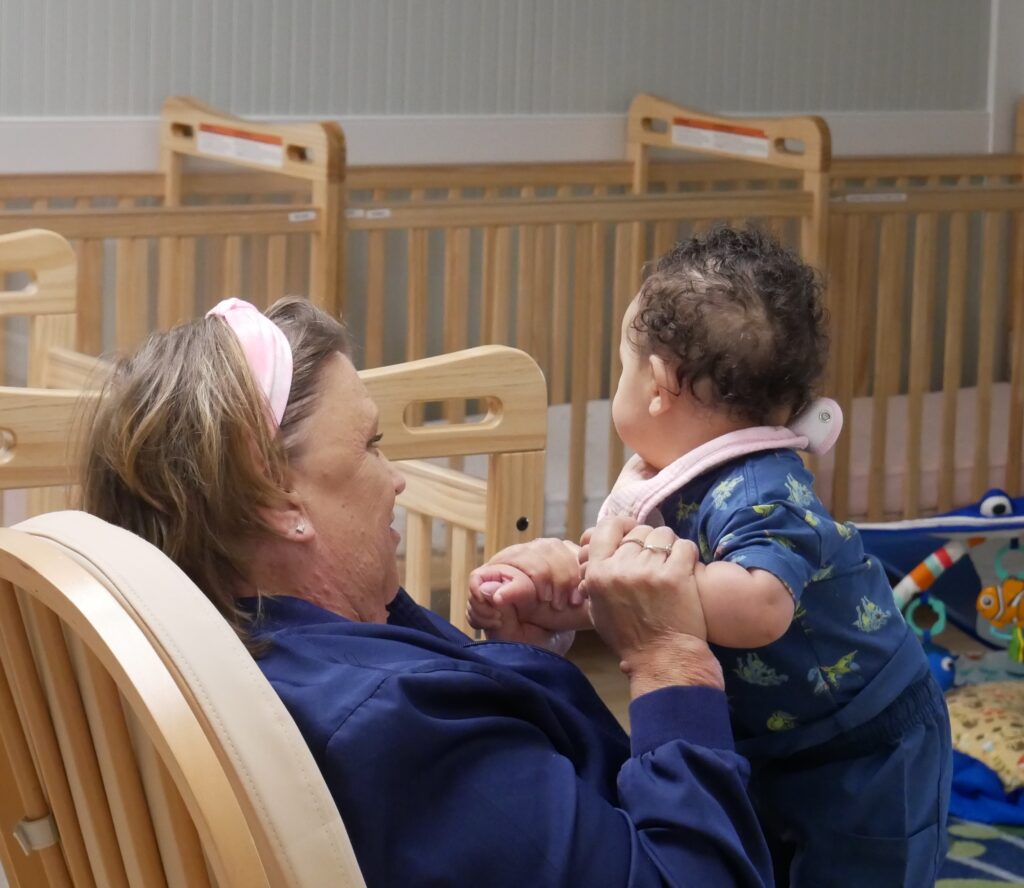Not just a job, a career
Early Bird readers, hello again. Newcomers, welcome! If you were forwarded this email, you can sign up here to receive it every two weeks, and join our conversation on issues facing North Carolina’s young children and those who support them. If you’re already a subscriber, please help us reach more people by sharing this with your friends and co-workers interested in early childhood education.

New Mexico made history this month as the first state to offer universal child care. The state’s success, experts say, will depend on its ability to build its supply of early childhood programs and teachers.
Though North Carolina is not making headlines for early childhood investments, there are initiatives underway to strengthen its early childhood teacher pipeline in the meantime. Katie and I explored two of them this month: apprenticeships and academies.
Both have growing momentum across the state. Apprenticeships, which provide teachers with the ability to work and go to school at the same time, have exploded in popularity, growing from 12 to 368 active apprentices since January 2023. Academies, which provide teachers the training they need to start working in child care at no cost to them, are popping up in a growing number of communities (at least 11 so far, with more than a dozen that have expressed interest).
Both knock down barriers to entry. Building Bright Futures (BBF), an effort that has played a key role in expanding apprenticeships across the state, provides financial support to child care providers with apprenticeship programs for teachers’ wage increases, basic health and safety trainings, and background checks. Academies provide required trainings for free in sessions that last anywhere from two to six weeks. Some also expose participants to coursework that allows teachers to earn their lead teacher credentials.
Both can provide debt-free higher education access. Depending on the specifics of the models, teachers are able advance their knowledge, credentials, and degrees with a better chance of earning higher wages in their careers.
Many apprenticeship sponsors participate in the TEACH program, which provides teachers with tuition assistance. Pre-apprenticeships, the high school version of the model, allow high school graduates to access free community college if they continue on to an apprenticeship program. Some of the academy models also provide free access to community college coursework so that teachers can continue to work towards degrees.
“The idea that there’s a set program with a pathway appeals to people,” said Morgan Ford, program director of BBF. “They’re not just going for a job, they’re going for a career.”
Both need more funding to be sustainable. These models were lifted up in Gov. Stein’s Child Care & Early Education Task Force interim report in June and a February report from the NC Chamber Foundation. The Division of Child Development and Early Education (DCDEE) is temporarily funding the models through the federal Preschool Development Grant Birth through Five (PDG B-5). The fate of PDG B-5 is unclear as Congress works its way through the budget process.
If the funds are cut, DCDEE spokesperson Hannah Jones said it would “have a devastating impact on the early childhood systems that support the healthy development of North Carolina’s young children and their families.”
Katie and I visited New Mexico in the fall of 2023, when leaders were well on their way to universal child care. Here’s what we learned about their journey towards recognizing early care and education as a public good, and here’s what North Carolina can learn from states that are taking big swings in early childhood policy and investment.
More from EdNC on early childhood
Child care academies provide fast track to early childhood educators, filling workforce shortages
In at least 11 counties across North Carolina, early childhood education agencies and community colleges are running child care academies designed to get new teachers into classrooms faster than traditional routes — and they’re doing it at little to no...As early childhood apprenticeships increase, leaders say more are needed to support 'the workforce behind the workforce'
In January 2023, there were around 12 active early childhood educator apprentices across the state — teachers working in early childhood classrooms while going to school. Now, there are 368. One of those, Micky Johnson, is a “floater,” a flexible...How are the children? NC Child launches data center, county cards, on youth health, education, and well-being
Nonprofit NC Child launched a new data center this month, as well as data cards for all 100 counties, to assess children’s health, education, and well-being as individuals and within their families and communities. Here are some takeaways, combining the...Profiles in Care | QuaShawnda Everett educates early childhood educators
EdNC is highlighting the experiences of educators, families, researchers, and advocates with a stake in North Carolina’s early care and learning landscape. These profiles illustrate that care and education are inseparable, especially in a child’s first five years — caregivers...Durham-based Book Harvest celebrates new literacy programs, summer collaboration with DPI
A collaboration between Book Harvest, a Durham-based youth literacy nonprofit, and the Department of Public Instruction (DPI) provided 76,000 books to 6,920 pre-K through fifth grade students this summer, according to a press release. The program, Books on Break, gave...North Carolina leaders recognize Hispanic Heritage Month
Gov. Josh Stein issued a proclamation earlier this month recognizing Sept. 15 to Oct. 15 as Hispanic and Latino Heritage Month, a yearly nationwide tradition since 1988. The proclamation highlights the state’s pride for its diverse population and invites North...The big picture for little kids
News & Research
-
Undocumented Preschoolers Can Stay in Head Start — For Now - From zero2eight
-
Helping kids learn how their brains work - From The Hechinger Report
-
Child Care: From Market Failure to Strategic Investment - From Prenatal-to-3 Policy Impact Center
-
Actionable Strategies For Increasing Attendance and Reducing Chronic Absenteeism - From NC Early Childhood Foundation
-
New Mexico will be the first state to make child care free - From The 19th News
-
2025 Child Care and Early Learning State Fact Sheets - From First Five Years Fund
-
Child Care Gaps Assessment - From Buffet Early Childhood Institute
Taking flight! Opportunities to spread your wings
QRIS community meetings - From Division of Child Development and Early Education
The Division of Child Development and Early Education is hosting a series of community meetings to share information on the new Quality Rating and Improvement System (QRIS), “Pathways to the Stars,” which rates the quality of licensed child care. The following meetings will be held from 6:30-7:30pm:
- 9/25/25 – Morganton – Foothills Higher Education Center, 2128 S Sterling Street, Morganton, NC, 28655
- 9/29/25 – Greenville – Pitt County Agriculture Center – Auditorium – 403 Government Circle, Greenville, NC 27834
- 10/1/25 – Raleigh – Wake County Smart Start – 4901 Waters Edge Drive #101, Raleigh NC 27606
Linked above more information on the state’s QRIS modernization process.
"Research to policy" summit - From Prenatal-to-3 Policy Impact Center
September 30, 2 pm EDT | From the organizer:
“Join us for a virtual experience where state leaders, community advocates, and changemakers from across the country come together to explore some of the most influential work done across states to reshape the early childhood development landscape.”


